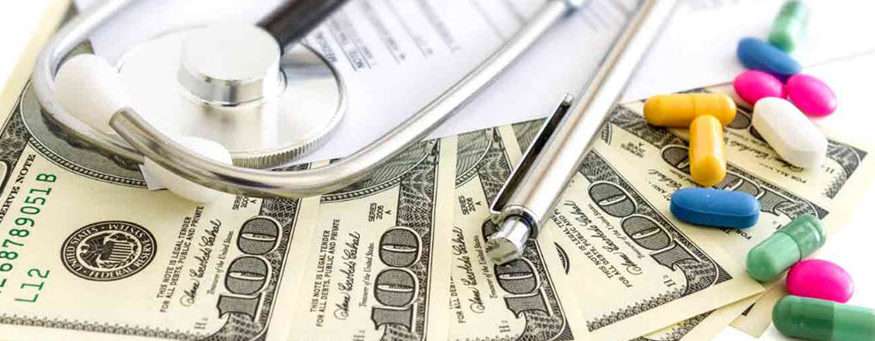How to Handle Massive Medical Bills on a Tight Budget
Even if you have insurance, health care costs can add up quick. High deductibles or inadequate coverage can make a trip to the emergency room a budget buster. But, if your life is on the line, you don’t have many options aside from facing the bills once they start rolling in.
To help you handle massive medical expenses, even if you’re on a tight budget, here are some tips.
Make Sure the Bills and Statements are Accurate
Hospitals are busy places, and many people end up incorrectly or over-charged for supplies and procedures. In fact, some families spot charges on the bills for treatments they never received or items that weren’t used.
Insurers mess up too. There are stories all over the internet discussing cases where the insurance company didn’t pay for a charge that should have been covered, leading the hospital to bill the patient.
Once your bills start coming in, review every line to make sure you are being charged for the care you actually received. Then, speak with your insurer to confirm everything is listed with the proper discount and that their payment didn’t miss something that should have been covered more extensively. If errors are found, work with the appropriate entity to get them corrected. That way, you are only paying what you should owe.
Negotiate a Payment Plan
Some people aren’t aware that you can create a payment plan through the hospital, even if you only have a few hundred dollars in charges owed. Call the hospital’s billing department and request information about a payment plan, especially if you are experiencing a hardship. In many cases, these institutions would rather work with you and get paid for the services provided than having to turn your account over to collections.
By avoiding collections, you also protect your credit score and the difficulties associated with dealing with these agencies. Ultimately, it is always best to discuss your options with the hospital as soon as possible, as they will likely be able to help.
Request a Cash Discount
If you have some cash available to put toward the bill, but not the full amount owed, ask the hospital if they offer a cash discount. Sometimes, if you can pay the majority of what is owed immediately and in cash, they will knock a percentage off of your bill to help settle your account. Be upfront about what you have to offer and see if they would consider your account paid-in-full for that amount or if they would offer a discount in the total for sending that payment in now. While this doesn’t always work, it doesn’t hurt to ask.
Just remember, many of these are based on cash payments. That means using a credit card (or even a debit card) might not be an option. However, a personal or cashier’s check brought to the billing office will typically qualify as cash, so you do have options.
Using the tips above, you may find that dealing with a large medical bill doesn’t have to be as burdensome as it initially appeared. And, you can combine all three to make sure you pay the lowest amount possible, depending on what you can pay now and what you can afford as a monthly payment. The best part is that none of these should hurt your case, so your only risk is them saying “no.” With that in mind, you can see what asking it likely the best course of action when dealing with insurmountable medical expenses.
How to Reduce Ongoing Medical Costs
In addition to dealing with medical bills, there are ways to help keep future costs down. This can be done through help with low cost or free healthcare as well as medication assistance. There are numerous ways to access free or heavily discounted meds.

